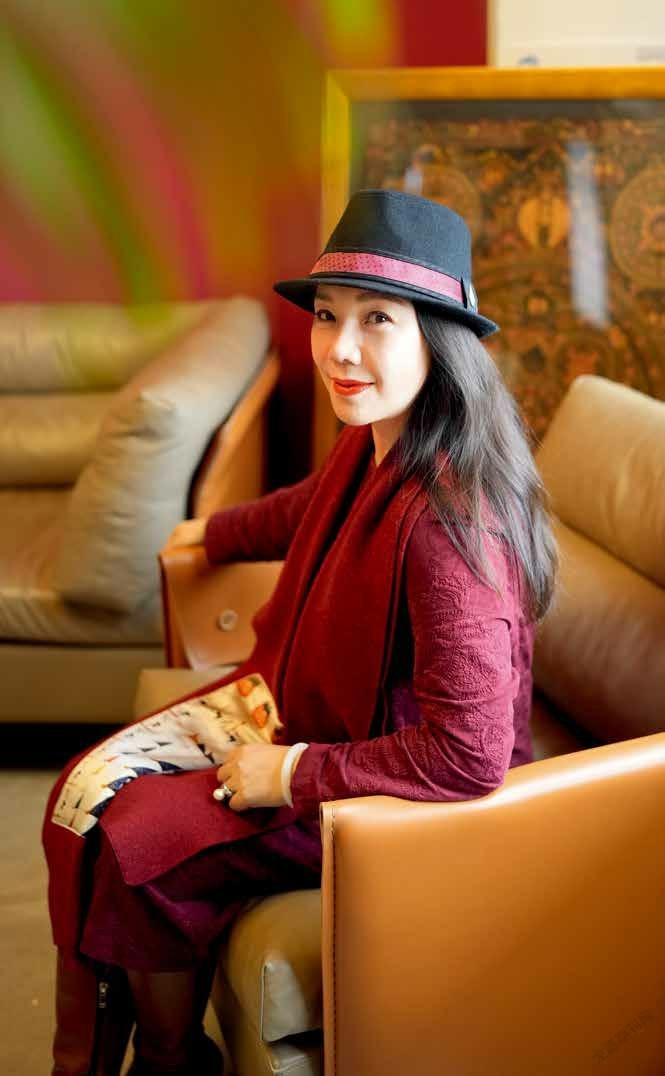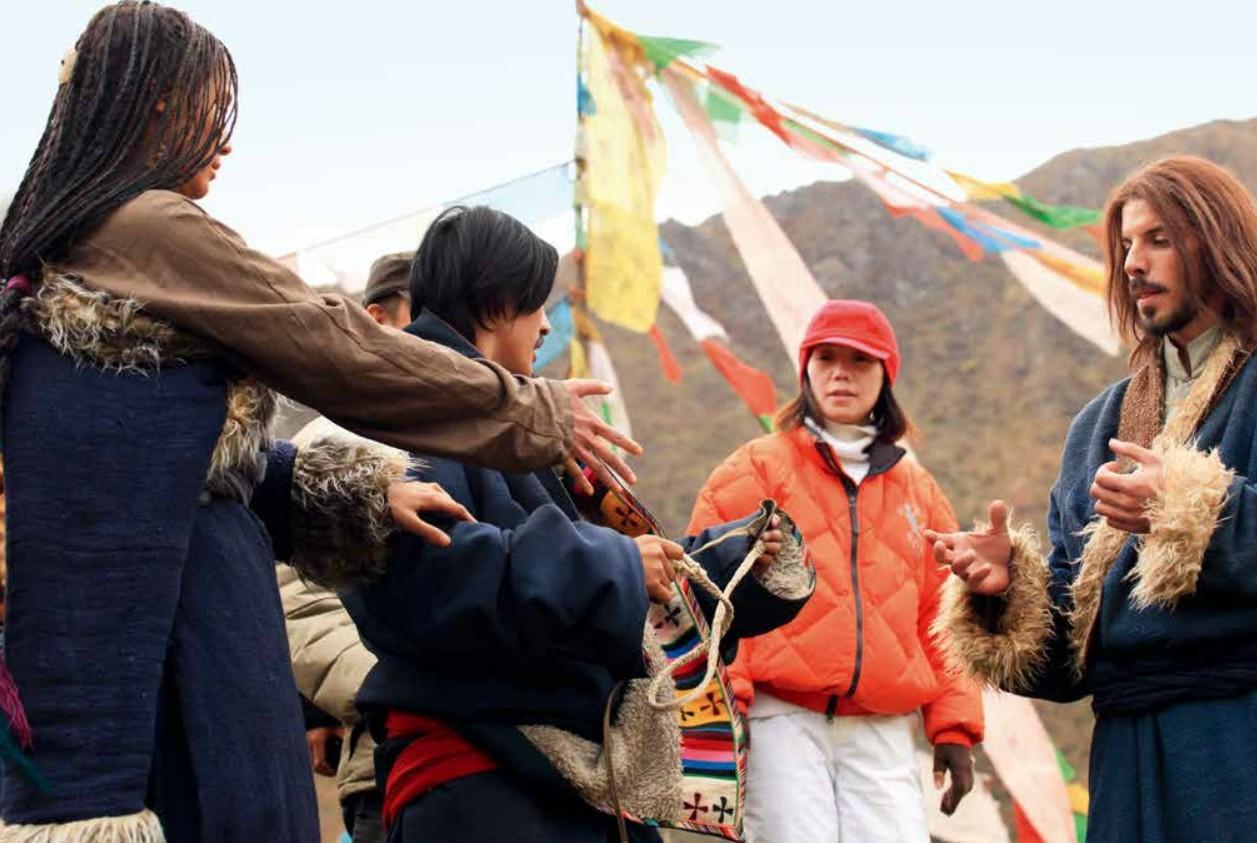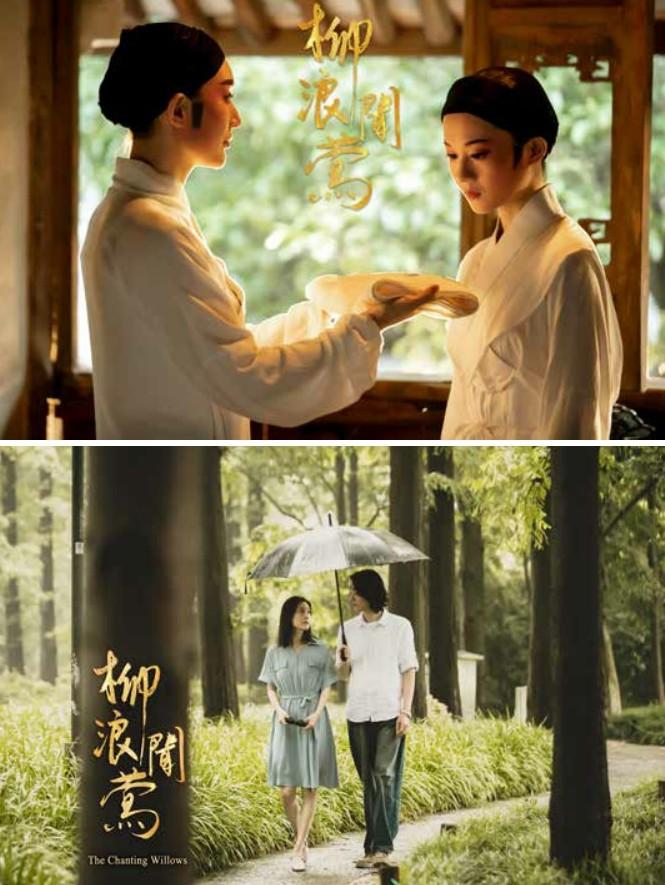Director Dai Wei:Wallowing in Willows
2022-06-28byNancyGong
by Nancy Gong
Director Dai Wei was not sure about her own identity within her generation of Chinese female directors in the 21st century until her fourth film The Chanting Willows, which“expressed herself fully” and captured the potential talent and touch female filmmakers can bring to cinema.
The Chinese title of the film is Liu Lang Wen Ying, literally“yellow warblers singing in a sea of willows,” a reference to one of the most famous sights of West Lake in Hangzhou, eastern Chinas Zhejiang Province. The film hit Chinese theaters on March 5 this year. The romance follows a melancholy love triangle between a male painter and two actresses working at a local Yue Opera theater as they navigated the rapidly changing 1990s, a time in which traditional opera troupes were struggling with the shrinking market.
The movie was adapted from Love Stories at West Lake, a novella collection written by Mao Dun Literature Prize-winning novelist Wang Xufeng. The romantic and poetic expression of delicate and reserved love stories against a backdrop of a sea of willows around West Lake inherited from the novella bestowed the film unique Eastern aesthetics, which left audiences clamoring for more.
Dai was one of the few Chinese female directors to emerge in 2005 when she shifted from television to make her first movie, Ganglamedo, set in southwestern Chinas Tibet Autonomous Region. Before that, she had directed dozens of galas for China Central Television and shot nearly a hundred music videos for acclaimed singers from China and abroad, many of which earned her titles and awards.“Shooting music videos ignited my interest in making movies, and filmmaking has been my lifelong pursuit,” Dai said.
Previously, Dais 2017 film Once Again won her the Best Director award at the 13th Chinese Cinema Festival in Paris in 2018. According to Dai, however, she hopes shes remembered more for The Chanting Willows because she hadnt yet learned to “express herself fully” before.
Dai spent the three years from 2018 to 2020 adapting and polishing the script. She changed the narrative perspective from the male painter Gong Yushan in the novella to the two Yue Opera actresses. Chuitiao, who plays young male roles in operas, and Yinxin, who plays female roles, grew up in the same troupe and supported each other. The gifted Chuitiao was the only person in the troupe willing to partner with Yinxin who showed mediocre talents.26CEC5BF-083F-4A49-A90C-5411B8404319
The narrative perspective of two female leads changed the way of storytelling, the description of protagonists, and the overall artistic aura of the movie. The film purposely weakened the tangles of the love triangle to place more focus on the impact of the withering opera market and the complications brought by the male painter to the relationship between two female best friends. With her keen artistic sensibility, Dai portrayed the helpless mentality and life tracks of two traditional Yue Opera performers struggling to survive in the wave of market economy.
Inspired by the novella, the film also dove deep into how Chuitiaos choices shaped her destiny from a gender perspective. The movie opens with the painter saying, “A woman playing young male roles in Yue Opera represents a third gender between male and female,” which echoes with Chuitiaos note at the end: “A woman playing a young male role reflects a purer gender combination and beyond the gender binary of male and female.”
The female narrative perspective and sisterhood between the two actresses invited the audience to approach the movie and its director from a female perspective. “I want to represent some women and highlight their inner warmth, softness, toughness, and determination,” Dai said. “It doesnt matter if I get labeled as a female director who focuses on women. The most important thing for me is to express myself fully through my work, and nothing else is more satisfying to a director.”
The Chanting Willows, though acclaimed in the critical sphere, had grossed only 3.5 million yuan(about US$550,000) as of March 31, less than half of the total budget, partly due to restriction measures in theaters during the COVID-19 pandemic. “In fact, low box office performance is the embarrassing reality that many female directors and even almost all art films face,” sighed Dai.“But the art of film is eternal, and making good movies is what I am going to keep doing.”
Dai pledged to continue focusing on women and stories about them. “I want to make movies that leverage my feminine sensitivity and unique understanding of women to touch hearts,” she declared. Like the protagonists in The Chanting Willows or the single mother in her favorite Danish film Dancer in the Dark, she envisions characters with optimism as strong as hers. 26CEC5BF-083F-4A49-A90C-5411B8404319
26CEC5BF-083F-4A49-A90C-5411B8404319
